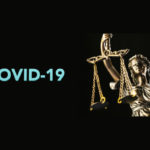Can I Avoid a Conviction and Licence Disqualification if I am Guilty of a second or more Major Traffic Offence?

Section 10 dismissal or conditional release order of the Crimes (Sentencing Procedure) Act 1999 (NSW) is a way to avoid a criminal conviction and, in driving cases, a licence disqualification and fine.
The section may apply if you plead guilty, or are found guilty, of a criminal offence or traffic offence.
It applies to all offences regardless of their seriousness, but it is more likely that you will get a non conviction order if the offence is fairly minor.
At the end of the day, the Magistrate decides whether or not to give you a non conviction order – and your lawyer should ensure that you are fully prepared on the day of your ‘sentencing’ so that you have the highest chance of getting a non conviction order.
A good traffic lawyer will guide you about how to prepare character references, write a letter of apology and, if appropriate, where to undertake a traffic offender program.
They will be able to present your case as strongly as possible in court, with a view to persuading the Magistrate to grant you a non conviction order.
However, section 203 of the Road Transport Act 2013 (NSW) prohibits Magistrates and Judges from granting non conviction orders in certain circumstances.
When am I prohibited from getting a section 10 dismissal or conditional release order?
If you are charged with an ‘applicable offence’ and have already received a non conviction order for an ‘applicable offence’ within the previous 5 years, you will not be able to receive a second non conviction order for your current charge.
Importantly, it does not matter whether or not the prior offence was different to the offence you are currently charged with – in other words, section 203 will prevent you from obtaining a second non conviction order as long as both are ‘applicable offences’.
What is an ‘applicable offence’?
Applicable offences are listed in section 203 and include:
- drink driving ie driving with a low range, middle range or high range p.c.a.;
- driving under the influence;
- menacing driving;
- failing to stop and assist after motor vehicle impact causing injury;
- failing to stop and assist after motor vehicle impact causing death or grievous bodily harm;
- refusal or failure to submit to test analysis or assessment (for drugs or alcohol);
- wilful introduction or alteration of concentration or amount of alcohol or other drugs;
- negligent driving, and
- drive recklessly, furiously or in a manner / at speed dangerous (aka ‘reckless driving’).
You will also be barred if you are charged with aiding, abetting, counselling or procuring the commission of any of the above offences..
What you should keep in mind, however, is that if you are charged with an ‘applicable offence’ but DID NOT PREVIOUSLY receive a non conviction order for your prior ‘applicable offence’(eg if you were previously disqualified and/or fined), then you WILL be eligible to receive a non conviction order for your current offence.
So if you are charged with a second or more ‘major traffic offence’ within 5 years, it is a good idea to speak with an experienced traffic lawyer about your chances of getting a non conviction order and avoiding a conviction, licence disqualification and fine.
Going to court for a traffic offence?
If you are going to court for a traffic offence, call or email Sydney Criminal Lawyers anytime to arrange a free first consultation with an experienced, specialist traffic lawyer who will accurately advise you of your options, the best way forward, and fight for the optimal outcome in your specific situation.






